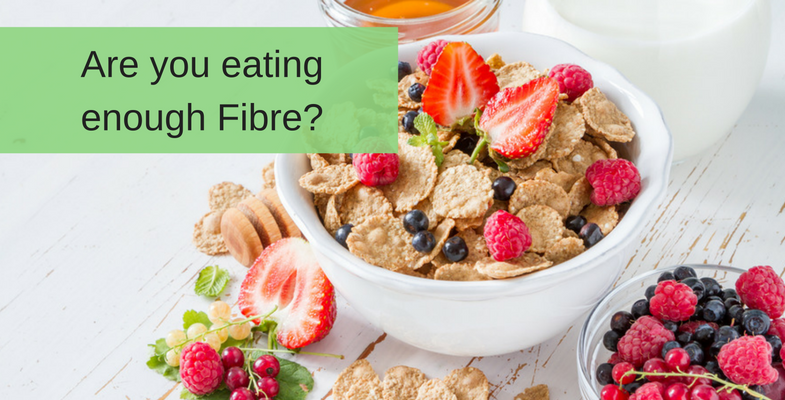You have no items in your shopping cart.
0item(s)
You have no items in your shopping cart.

What Is Fibre?
Fibre is a type of carbohydrate which our digestive system is unable to breakdown and absorb. The reason for this is that our bodies don’t produce the enzymes required to digest the fibre.
There are two types of fibre, soluble & insoluble.
As the name suggests soluble fibre can dissolve in water. Once dissolved a gel is formed which helps keep stools softer and helps prevents constipation. Sources of soluble fibre:
Insoluble fibre helps substances that aren’t required by the body to pass through the digestive system more efficiently. Sources of insoluble fibre include:
The Benefits of a High Fibre Diet
High fibre diets are linked to a lower risk of developing coronary heart disease, stroke, high blood pressure, gastrointestinal diseases, diabetes and obesity.
These benefits of a high fibre diet are not just the result of increased fibre intake. They are also due to the high fruit & vegetable consumption which is typically found in a high fibre diet. Therefore if you concentrate on increasing your fibre you will likely end up having a more nutritious diet all round with more vitamins and minerals.
How much Fibre should I eat?
The government guidelines on fibre as of July 2015 are that adults should consume 30g daily. However most people in the UK are not consuming enough fibre with the average daily intake being just 18g which is only 60% of what is recommended. Here are some ways in which you can increase your fibre intake: